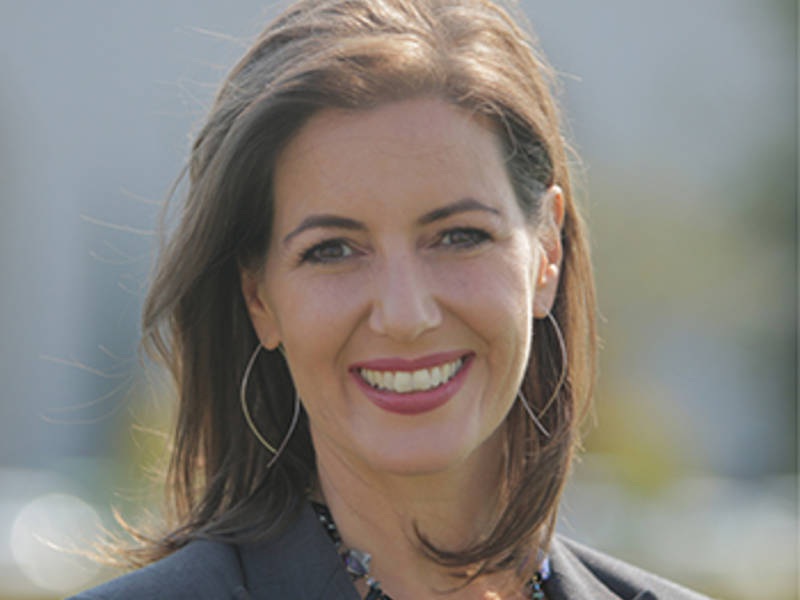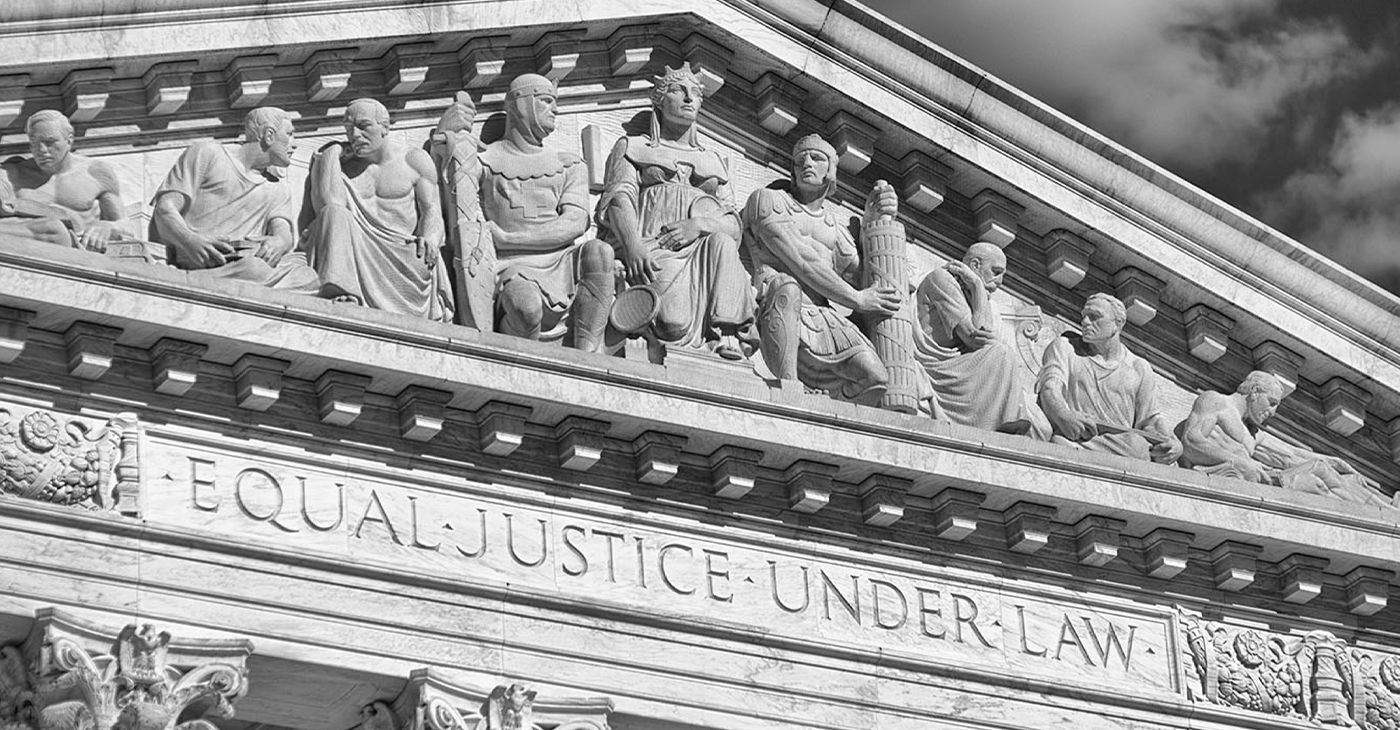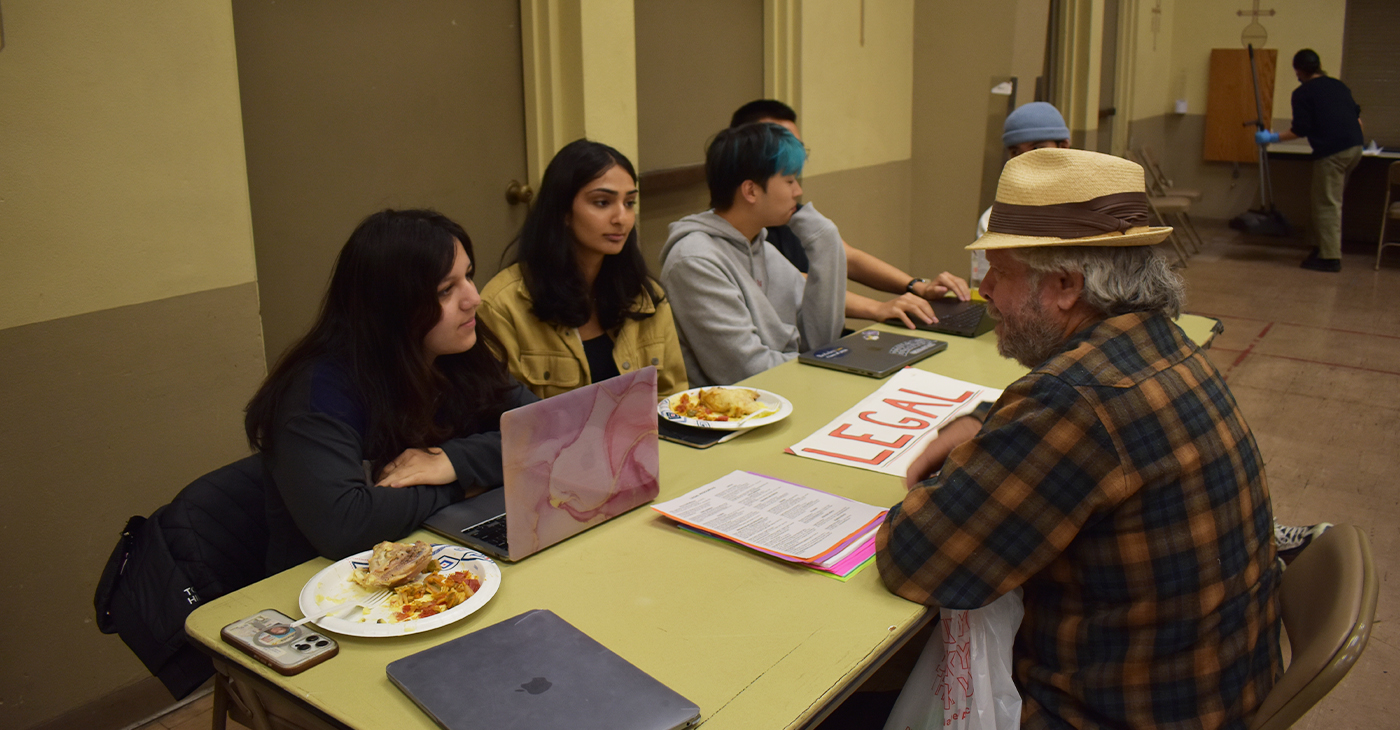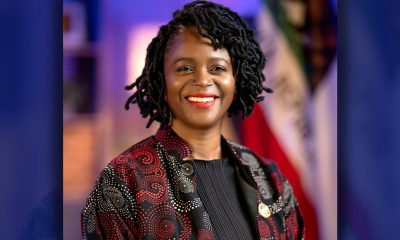Community
Oakland Will Pilot Guaranteed Income Program
“One of my hopes in testing out a guaranteed income is that other cities would follow suit, and I’m thrilled that Oakland is among the first. I applaud Mayor Schaaf’s leadership and am looking forward to working with her to move from pilot to policy,” said former Stockton Mayor and Founder of Mayors for a Guaranteed Income, Michael Tubbs. “By focusing on BIPOC residents, the Oakland Resilient Families program will provide critical financial support to those hardest hit by systemic inequities, including the pandemic’s disproportionate toll on communities of color.”

In partnership with Family Independent Initiative and Mayors for a Guaranteed Income, Oakland Resilient Families will be among the nation’s largest efforts to determine the effectiveness of monthly unconditional payments to residents to help overcome economic instability
Oakland will host one of the largest guaranteed income pilot projects in the country to give 600 BIPOC families with low-incomes an unconditional $500 per month for at least 18 months.
“Oakland Resilient Families” is a collaboration between the Oakland-based community organization Family Independence Initiative and the national Mayors for a Guaranteed Income. The project will support 600 Oakland families while building momentum for strategies to eliminate racial disparities in economic stability, mobility, and assets through a guaranteed income.
“The poverty we all witness today is not a personal failure, it is a systems failure,” said Oakland Mayor Libby Schaaf. “Guaranteed income is one of the most promising tools for systems change, racial equity, and economic mobility we’ve seen in decades. I’m proud to work with such committed local partners to build a new system that can help undo centuries of economic and racial injustice and point us all toward a more just society.”
The Oakland Resilient Families partnership is excited to announce the framework design for community feedback, with the goal of starting payments this spring and summer.
Key Points:
- Who is this for? Black, Indigenous, and People of Color (BIPOC) (i.e. groups with the greatest wealth disparities per the Oakland Equity Index) with low incomes and at least 1 child under 18, regardless of documentation status. The term “family” is defined broadly to recognize that families come in all shapes and sizes.
- How is “low-income” defined? At or below 50% of Area Median Income (about $59,000 per year for a family of 3), however half of the spots are reserved for very-lo- income families earning below 138% of the Federal Poverty Level (about $30,000 per year for a family of 3).
- How are families chosen and how will they apply? Later this spring and summer, and after considerable community outreach efforts that begin with this week’s announcement, a multilingual online form will be released where families can answer a few questions to screen for eligibility. After that families are randomly selected to receive the cash payments.
- How can the money be used? In any way families want. Families will receive $500 per month for 18 months, unconditionally, to use however they choose. They have the option of participating in periodic surveys and interviews, but are not required to.
- When will this start? The goal is to begin payments to families this spring after incorporating more community feedback and to have the entire program up and running this summer.
Oakland Resilient Families began with a pledge to bring a guaranteed income program to Oakland when Mayor Libby Schaaf joined Mayors for a Guaranteed Income as a founding mayor in 2020. Mayors for a Guaranteed Income (MGI) grew out of the groundbreaking Stockton Economic Empowerment Demonstration (SEED) led by former Mayor Michael Tubbs.
MGI now convenes in dozens of cities across the country to support guaranteed income pilots. Oakland Resilient Families is not a city-run program but the partnership with MGI connects the initiative with dozens of other cities for research collaboration and technical assistance.
In preliminary results released earlier this month, gathered from Feb. 2019 to Feb. 2020, SEED found recipients obtained full-time employment at more than twice the rate of non-recipients. Recipients were less anxious and depressed, both over time and compared to the control group. They also saw statistically significant improvements in emotional health, fatigue levels and overall well-being.
“One of my hopes in testing out a guaranteed income is that other cities would follow suit, and I’m thrilled that Oakland is among the first. I applaud Mayor Schaaf’s leadership and am looking forward to working with her to move from pilot to policy,” said former Stockton Mayor and Founder of Mayors for a Guaranteed Income, Michael Tubbs. “By focusing on BIPOC residents, the Oakland Resilient Families program will provide critical financial support to those hardest hit by systemic inequities, including the pandemic’s disproportionate toll on communities of color.”
The project team includes Oakland-based national non-profit Family Independence Initiative (FII) as the implementing partner and Oakland Thrives provides backbone support and coordination. FII was founded in Oakland 20 years ago with the belief that that society has underestimated the potential and resourcefulness of communities with limited income to improve their own financial and general well-being. FII uses technology to facilitate families in accessing cash and supporting one another in achieving mobility — working with over 200,000 households nationally with $140 million in unrestricted cash transfers since the pandemic reached the U.S.
“When people say ‘How do we solve poverty in America?’ The reality is that families solve poverty everyday,” said Jesus Gerena, CEO, Family Independence Initiative. “FII is proud to deepen our partnership with Oakland families in our hometown through Oakland Resilient Families.”
In partnership with local community organizations and government leaders, Oakland Resilient Families will continue incorporating community feedback on design and implementation. Opportunities will include multilingual outreach, socially distanced in-person and online presentations, tabling at community events, and focus groups with eligible families compensated for their time.
“As a Council representative for East Oakland, an area that faces many challenges including economic disparities and historic underinvestment, I am excited to see this innovative program come to Oakland,” said Councilmember Loren Taylor. “While traditional outreach often comes up short – failing to effectively engage those with the most need, I am ready to help lead a more effective community engagement process to bring hope and relief to those who have not had the chance to benefit from the same prosperity and opportunities in Oakland.”
Oakland Resilient Families is 100% funded through philanthropic donations anchored by an investment from Blue Meridian Partners’ Place Matters portfolio, which aims to improve economic and social mobility in communities across the US through investments both in place-based partnerships and in supports to catalyze their success.
For more information visit www.oaklandresilientfamilies.org
Activism
City of Oakland Celebrates Reopening of Main Library
“Libraries are such critical facilities for all Oaklanders, whether it’s children coming to story-time, adults reading the newspapers or borrowing the latest novels, and people engaging with a range of services and programs that the library hosts,” said Council President and District 2 Councilmember Nikki Fortunato Bas. “Such library services and programs are only possible when the facility’s electricity, heating, roof, and lighting are fixed and running efficiently. I’m proud to join this re-opening of our Main Public Library.”

The branch had been closed since May for critical infrastructure upgrades
Special to the Post
The City of Oakland leadership and community partners gathered to celebrate the reopening of the Main Library after completion of critical infrastructure upgrades to enhance the library’s facilities and provide a better experience for patrons.
Renovations include new roof installation, skylight repair, critical electrical system upgrades, new boiler control system installation, auditorium heating and cooling system installation, and improvements to lighting, flooring and ceilings throughout the building.
“This is truly something to celebrate, the reopening of our wonderful Main Library! I congratulate the staff and our partners for this important project to make the Main Library a more comfortable place for everyone for years to come, said Oakland Mayor Sheng Thao. “Thank you to Oakland voters and the California State Library for making these crucial improvements possible.”
“Libraries are such critical facilities for all Oaklanders, whether it’s children coming to story-time, adults reading the newspapers or borrowing the latest novels, and people engaging with a range of services and programs that the library hosts,” said Council President and District 2 Councilmember Nikki Fortunato Bas. “Such library services and programs are only possible when the facility’s electricity, heating, roof, and lighting are fixed and running efficiently. I’m proud to join this re-opening of our Main Public Library.”
“Public libraries are a wonderful resource for our residents, offering a safe space for learning and being,” said District 3 Councilmember Carroll Fife. “It is critical to improve and modernize our libraries so more members of our community can utilize and enjoy them. I’m excited that the necessary renovations to the Main Library have been completed successfully and thank everyone involved, particularly the City team, who helped secured the necessary grant funds for this work.”
“I am proud of the City staff and project partners who kept this important project on schedule and under budget,” said Assistant City Administrator G. Harold Duffey. “The library is an incredibly important resource for our community members, and this project is an investment into the library’s future.”
“December 2nd was a momentous occasion for Oakland Public Library as we proudly reopened the doors of the Main Library following extensive infrastructure repairs,” said Director of Library Services Jamie Turbak. “Closing the Main Library for six months was no easy decision, as it serves as the central hub for our library system and is truly the heart of Oakland. Yet, this renovation was essential, representing more than just physical upgrades—it reflects our ongoing commitment to creating a safe, welcoming space for everyone.”
The City Administrator Jestin Johnson also attended the press conference and signalled his support for the completion of the record-setting completion of the renovations. Gay Plair Cobb, a newly appointed Library Commissioner said the Library represents the soul and brains of our community.
The Oakland Public Library secured funding for these crititcal repairs through a variety of sources. The California State Library’s Building Forward Library Facilities Improvement Program awarded the Main Branch $4.2 million. To comply with the grant terms, the City of Oakland provided matching funds through Measures KK, as approved by the Oakland City Council in October 2023.
The Main Library will host an Open House to celebrate the reopening on February 22, 2025, 10 a.m. – 5:00 p.m.
About the Oakland Public Library
The Oakland Public Library is a part of the City of Oakland in California and has been in existence since 1878. Locations include 16 neighborhood branches, a Main Library, a Second Start Adult Literacy Program, the Oakland Tool Lending Library, and the African American Museum and Library at Oakland (AAMLO). The Oakland Public Library empowers all people to explore, connect, and grow. Oaklandlibrary.org
Activism
Biden’s Legacy Secured with Record-Setting Black Judicial Appointments
His record surpasses previous efforts by his predecessors. President Jimmy Carter appointed 37 Black judges, including seven Black women. In stark contrast, Donald Trump’s first term resulted in only two Black women appointed out of 234 lifetime judicial nominations. The White House said Biden’s efforts show a broader commitment to racial equity and justice.

By Stacy M. Brown
WI Senior Writer
President Joe Biden’s commitment to diversifying the federal judiciary has culminated in a historic achievement: appointing 40 Black women to lifetime judgeships, the most of any president in U.S. history.
Biden has appointed 62 Black judges, cementing his presidency as one focused on promoting equity and representation on the federal bench.
His record surpasses previous efforts by his predecessors. President Jimmy Carter appointed 37 Black judges, including seven Black women. In stark contrast, Donald Trump’s first term resulted in only two Black women appointed out of 234 lifetime judicial nominations.
The White House said Biden’s efforts show a broader commitment to racial equity and justice.
Meanwhile, Trump has vowed to dismantle key civil rights protections, including the Justice Department’s Civil Rights Division.
“Having the Black woman’s experience on the federal bench is extremely important because there is a different kind of voice that can come from the Black female from the bench,” Delores Jones-Brown, professor emeritus at John Jay College of Criminal Justice, told reporters.
Lena Zwarensteyn of the Leadership Conference on Civil and Human Rights told reporters that these district court judges are often the first and sometimes the final arbiters in cases affecting healthcare access, education equity, fair hiring practices, and voting rights.
“Those decisions are often the very final decisions because very few cases actually get heard by the U.S. Supreme Court,” Zwarensteyn explained.
Biden’s nomination of Justice Ketanji Brown Jackson to the Supreme Court further reflects his commitment to judicial diversity. Jackson became the first Black woman to serve on the nation’s highest court.
Patrick McNeil, spokesperson for the Leadership Conference, pointed out that over half of Biden’s Black female judicial appointees have backgrounds as civil rights attorneys and public defenders, experience advocates consider essential for a balanced judiciary.
Meanwhile, Congress remains divided over the expansion of federal judgeships. Legislation to add 66 new judgeships—approved unanimously by the Senate in August—stalled in the GOP-controlled House until after the election. House Republicans proposed distributing the new judgeships over the next decade, giving three administrations a say in appointments. President Biden, however, signaled he would veto the bill if it reached his desk.
Rep. Jerry Nadler, D-N.Y., argued the delay was a strategic move to benefit Trump’s potential return to office. “Donald Trump has made clear that he intends to expand the power of the presidency and giving him 25 new judges to appoint gives him one more tool at his disposal,” Nadler said.
Activism
A Student-Run Group Provides Critical Support Services to Underserved Residents
Those visiting The Suitcase Clinic can get legal advice, sign up for food assistance, receive housing resources, get medical help, or enjoy a hot, fresh meal. They can also get haircuts and foot washes from the student volunteers. Nilo Golchini, executive director of the clinic, said one of the goals for most of the students working there is helping bridge the gap of trust that exists between many unhoused people and the healthcare and social welfare systems.

Part One
By Magaly Muñoz
Every Tuesday evening, the dining hall of First Presbyterian Church fills up with dozens of people eating, laughing and moving from table to table, receiving much-needed services from UC Berkeley students – just a few blocks away from the university’s campus.
Individuals seeking support services can be found in this multi-stationed room on the south end of the church talking to law students, student case managers, or receiving medical attention in a corner by healthcare professionals.
This weekly event is hosted by Cal students through a volunteer-run program called The Suitcase Clinic.
The clinic, founded in 1989, was intended to offer free resources to underserved communities in Berkeley and surrounding cities. The majority of the clinic’s clientele are unhoused or low-income people looking for extra support.
Those visiting the clinic can get legal advice, sign up for food assistance, receive housing resources, get medical help, or enjoy a hot, fresh meal. They can also get haircuts and foot washes from the student volunteers.
Nilo Golchini, executive director of the clinic, said one of the goals for most of the students working there is helping bridge the gap of trust that exists between many unhoused people and the healthcare and social welfare systems.
During their tenure in the program, many of the students say they become strong advocates for homelessness rights.

Visitors of the Suitcase Clinic can receive haircuts and foot washing by student volunteers every Tuesday evening. Photo by Magaly Muñoz.
“We’re also standing in solidarity with them. So, it’s not saying, ‘I’m going to help you, but I’m also going to stand with you,’” Golchini said.
Student volunteers get extensive training prior to working directly with clients. Those interested have to take a semester-long class to become versed in areas such as outreach, intersectionality, how to interact with unhoused people, how to sign people up for social services. and more.
Volunteers then get to pick from three different clinics: General, Women’s, or Youth and LGBTQ+.
The General Clinic is the most popular among visiting residents, while Women’s and Youth/LQBTQ+ have more specialized services for attendees.
The Women’s Clinic has many of the similar services to General, but also includes nail painting, childcare, and massages.
The Youth and LGBTQ+ Clinic offers a safe space for young people navigating living on the streets, with services that include housing referrals, wellness and recreation classes and employment resources.
Golchini explained that it’s important for them to keep these clinics separate because the different demographics experience poverty and homelessness differently than those who visit the General Clinic.

Suitcase Clinic student workers posing for a photo with a frequent clinic attendee. The Clinic is open to Berkeley unhoused and low-income residents who need medical or legal service, or a hot meal. Photo by Magaly Muñoz.
“We’re able to provide spaces where people can come in and feel safe and not feel like they’re constantly worried that something’s going to happen to them,” she said.
An outreach team also visits encampments every other Saturday in the Berkeley area to provide hygiene kits and encourage people to visit the in-person clinic, if possible.
However, Golchini said engagement has been low for some time now due to a recent decision by the U.S. Supreme Court that allows cities to ban and cite people for sleeping on the streets.
She said a lot of their clientele got displaced to other cities over time, making it difficult to stay in contact with the services the Clinic was providing for them.
But that hasn’t slowed down the students at the Clinic, if anything, it has pushed them to do more for the community they serve.
-

 Activism4 weeks ago
Activism4 weeks agoOakland Post: Week of November 20 – 26, 2024
-

 California Black Media3 weeks ago
California Black Media3 weeks agoCalifornia to Offer $43.7 Million in Federal Grants to Combat Hate Crimes
-

 Activism4 weeks ago
Activism4 weeks agoAn Inside Look into How San Francisco Analyzes Homeless Encampments
-

 Black History3 weeks ago
Black History3 weeks agoEmeline King: A Trailblazer in the Automotive Industry
-

 California Black Media3 weeks ago
California Black Media3 weeks agoCalifornia Department of Aging Offers Free Resources for Family Caregivers in November
-

 California Black Media3 weeks ago
California Black Media3 weeks agoGov. Newsom Goes to Washington to Advocate for California Priorities
-

 Activism3 weeks ago
Activism3 weeks agoOCCUR Hosts “Faith Forward” Conference in Oakland
-

 #NNPA BlackPress4 weeks ago
#NNPA BlackPress4 weeks agoPRESS ROOM: Clyburn, Pressley, Scanlon, Colleagues Urge Biden to Use Clemency Power to Address Mass Incarceration Before Leaving Office



























































